On November 3rd, a temporary crack in Earth’s magnetic field set off rare pink auroras in the skies of northern Norway.
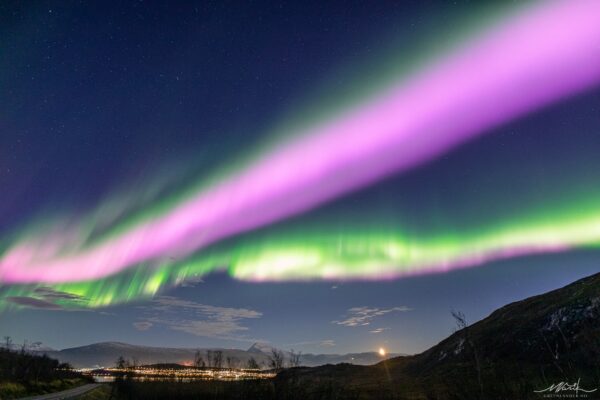
Auroras are mostly caused by the solar wind, as charged energetic particles from the Sun penetrate the magnetosphere, Earth’s magnetic field, which usually stops cosmic rays. At the two poles, however, the magnetosphere is weaker than elsewhere, allowing solar wind particles to penetrate the atmosphere.
They don’t tend to travel very far though, usually reaching an altitude where there are a lot of oxygen atoms, which are ionized and excited by the charged particles from the Sun and commonly emit a green hue. This time, however, a fierce solar storm created a gap in the magnetosphere, and the solar particles got deeper than usual, reaching the nitrogen atoms found lower down. These atoms, in turn, create a pink glow.
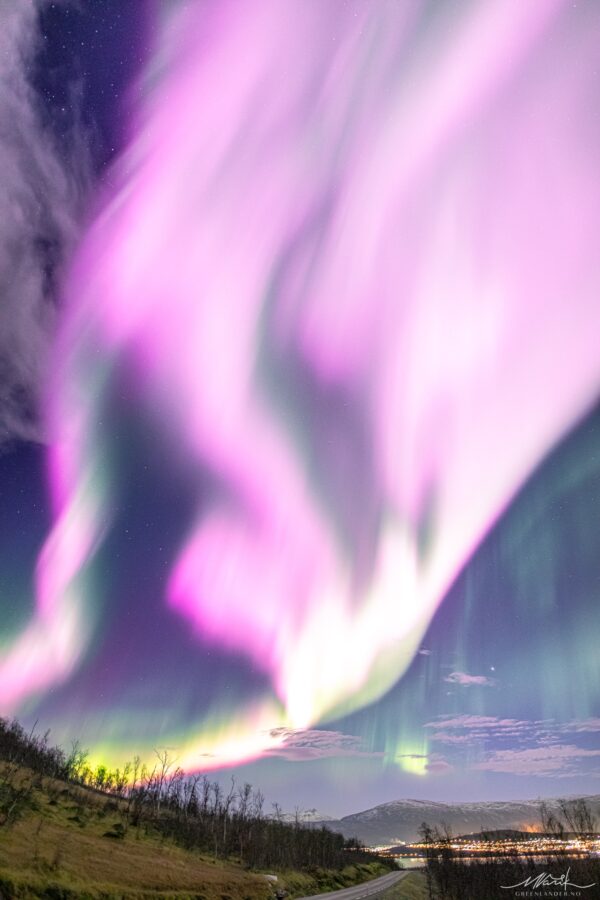
The rare phenomenon was spotted by a tour group led by Markus Varik, a northern lights tour guide from the Greenlander tour company based near Tromsø in Norway. The vibrant auroras emerged at around 6 p.m. local time and lasted for around 2 minutes, Varik told Live Science via email.
“These were the strongest pink auroras I have seen in more than a decade of leading tours,” Varik said. “It was a humbling experience.”
The crack in Earth’s magnetosphere also allowed strong green auroras to appear throughout the night, Varik added.

The hole in the magnetosphere closed about 6 hours after it first opened. During this time, a strange ribbon of blue light also emerged in the skies above Lake Tornetrask in Sweden, where it hung motionless in the sky for around 30 minutes, according to Spaceweather.com. It was captured by photographer Claudio Comi, who works for another tour operator in Swedish Lapland.
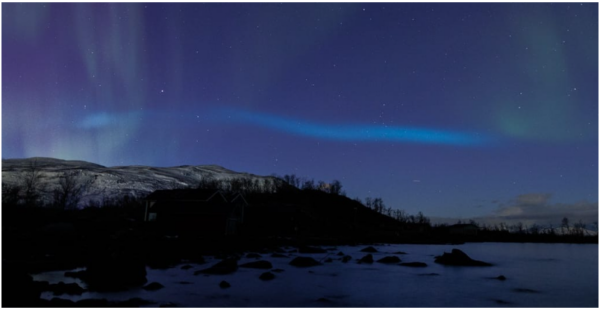
However, experts are unsure if the unusual blue ribbon was a never-before-seen kind of aurora caused by the opening in the magnetosphere, or if it was the result of something else. One expert suggested that it could have been made up of frozen fuel from a Russian rocket, but, according to Spaceweather.com, no rockets were spotted in the area during that day.

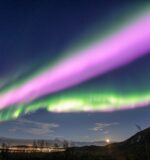
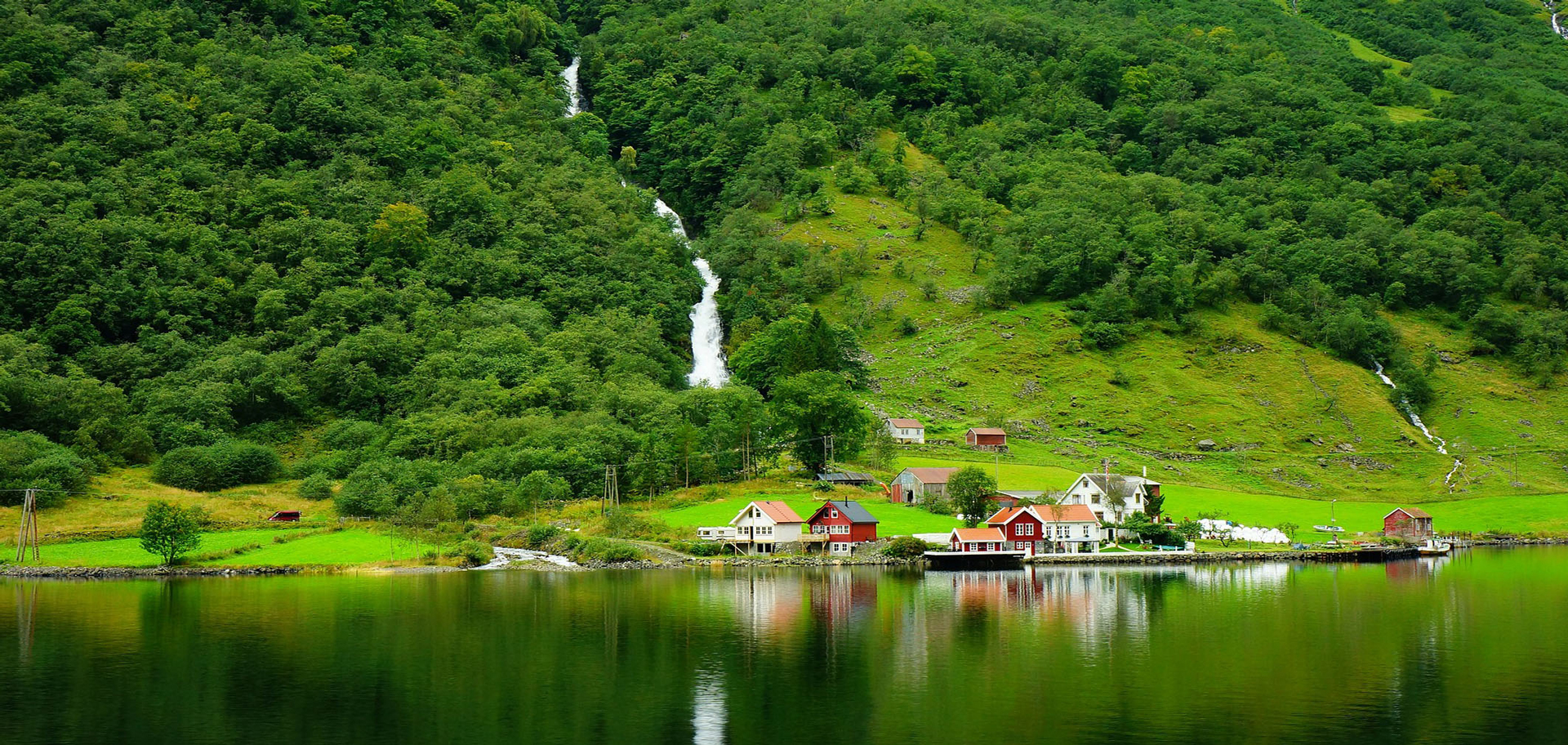

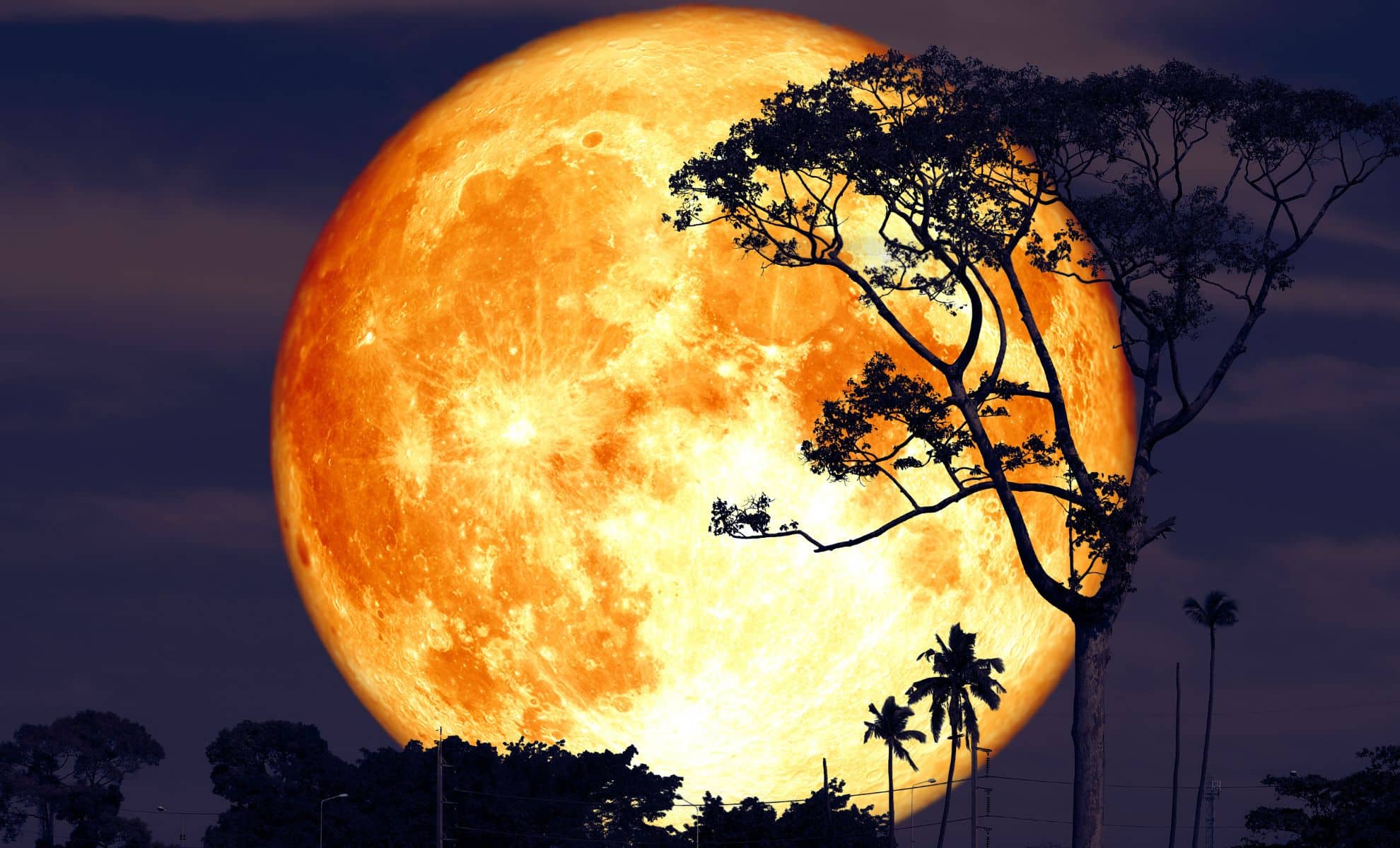
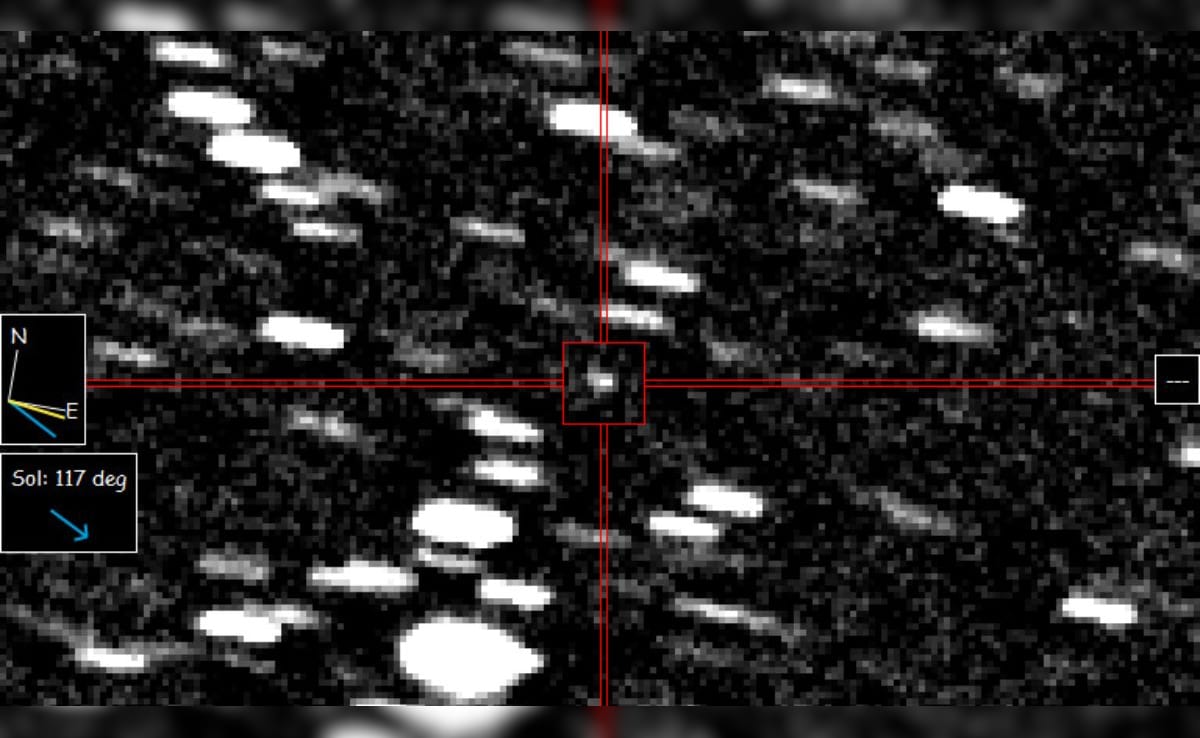


 Photographer Finds Locations Of 1960s Postcards To See How They Look Today, And The Difference Is Unbelievable
Photographer Finds Locations Of 1960s Postcards To See How They Look Today, And The Difference Is Unbelievable  Hij zet 3 IKEA kastjes tegen elkaar aan en maakt dit voor zijn vrouw…Wat een gaaf resultaat!!
Hij zet 3 IKEA kastjes tegen elkaar aan en maakt dit voor zijn vrouw…Wat een gaaf resultaat!!  Scientists Discover 512-Year-Old Shark, Which Would Be The Oldest Living Vertebrate On The Planet
Scientists Discover 512-Year-Old Shark, Which Would Be The Oldest Living Vertebrate On The Planet  Hus til salg er kun 22 kvadratmeter – men vent til du ser det indvendigt
Hus til salg er kun 22 kvadratmeter – men vent til du ser det indvendigt  Superknepet – så blir snuskiga ugnsformen som ny igen!
Superknepet – så blir snuskiga ugnsformen som ny igen!  Meteorite That Recently Fell in Somalia Turns Out to Contain Two Minerals Never Before Seen on Earth
Meteorite That Recently Fell in Somalia Turns Out to Contain Two Minerals Never Before Seen on Earth  Nearly Frozen Waves Captured On Camera By Nantucket Photographer
Nearly Frozen Waves Captured On Camera By Nantucket Photographer  It’s Official: Astronomers Have Discovered another Earth
It’s Official: Astronomers Have Discovered another Earth 